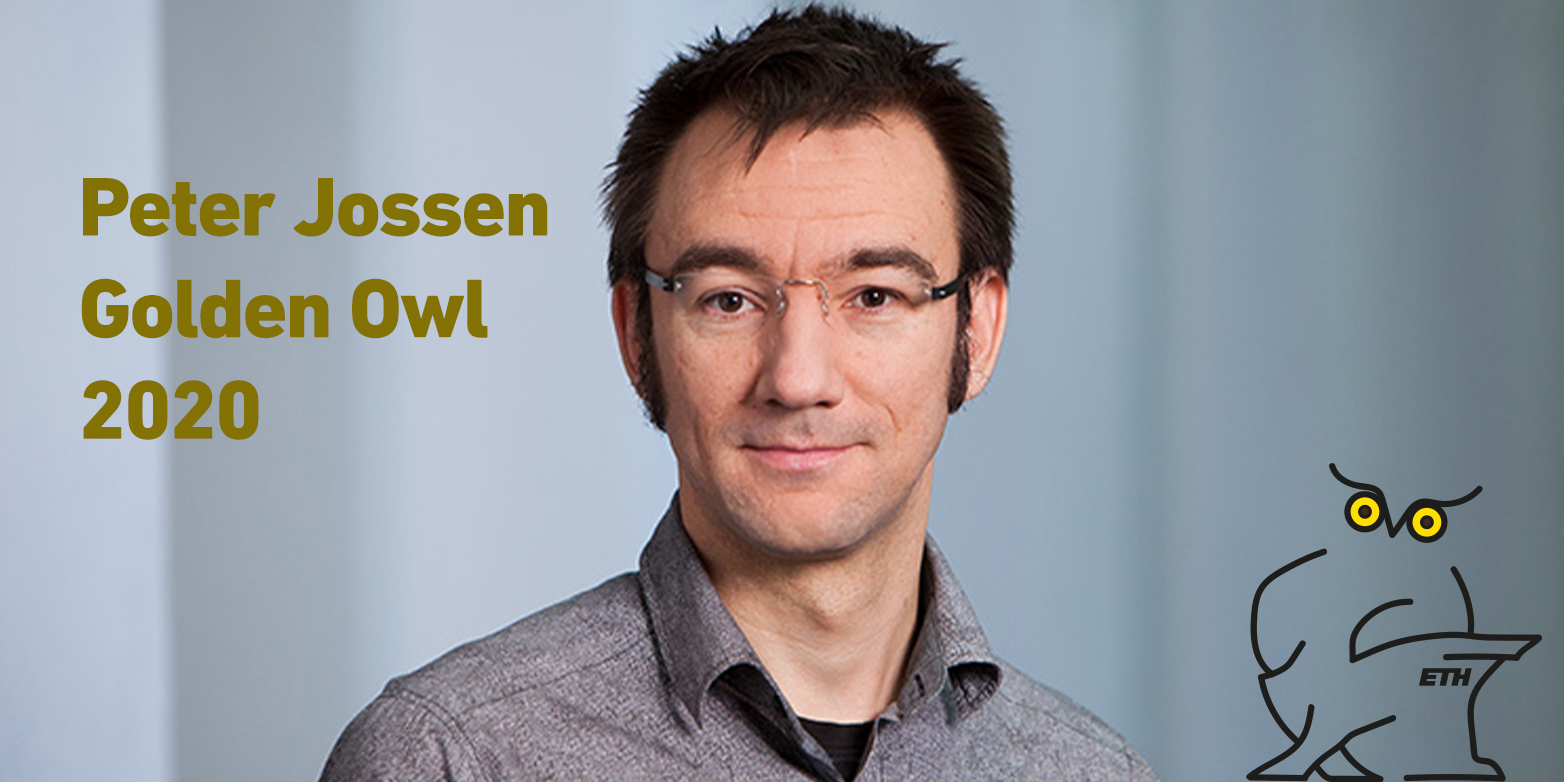Peter Jossen: 2020 Golden Owl
The student associations VSETH and VMP have chosen to honour Professor Peter Jossen with the 2020 Golden Owl. In this interview, he talks about the challenges he has had to face with the switch to online teaching and what he considers excellent teaching to be.

This year’s spring semester stood out because of the switch to online teaching that the coronavirus pandemic forced us to make. How did you change your Analysis lectures to accommodate the needs that students had in this new environment? And how did you identify what students were looking for?
The transition to online teaching came very abruptly, and at the same time as a lot of other disruptions in everyone’s life. Many of my students found it difficult to cope with familiar work structures suddenly breaking down, and with the general feelings of uncertainty and gloom that we were all experiencing. That was especially true for those with family living outside Switzerland. To help them, and for my own sanity, I tried to keep as many familiar elements in my lectures as possible. I recorded my lessons at the blackboard, live and in the usual format, with as much student interaction as possible in order to create at least the semblance of a classroom atmosphere. I also held the occasional open Zoom meeting on Saturday afternoons, which kept morale up and gave me a good opportunity to get feedback from students.
Blackboard lecturing simply wouldn’t have been possible without the professional support of the Multimedia Services team, so I’d like to thank all of them – especially the camera operators, who had to endure my lectures!
The Golden Owl is awarded to teaching staff who demonstrate a real sense of dedication to their profession and provide students with an outstanding teaching experience. What do you believe embodies excellence in mathematics teaching, and how do you try to bring that into your courses?
I believe that excellent teaching has to be both effective and entertaining. Especially in mathematics subjects, effective teaching hinges on content that is well-structured and organised, and that can only be achieved through detailed, self-critical preparation – whether it’s being applied to lectures, homework or exams. But it’s just as important to keep things entertaining: there’s no point in giving a meticulously prepared lecture if the students are too bored to attend. So I try to use a bit of spontaneous showmanship every once in a while – basically, anything that keeps the memes going is a success in my book!
What long-term changes do you think the pandemic has brought to teaching at ETH (in mathematics or otherwise) and to universities more generally?
Only time will tell – I’m not really one for predictions. If I had to highlight one positive aspect that’s come out of this otherwise terrible pandemic situation, it’s that lecturers – including teaching assistants – are being forced to experiment with teaching formats outside their comfort zone. That might lead some of them to find a format they really like and then add it to their teaching repertoire permanently. Hopefully that means that there’ll be a bit more variety on the teaching menu at ETH. Of course, this means giving lecturers and teaching assistants the freedom they need to experiment.